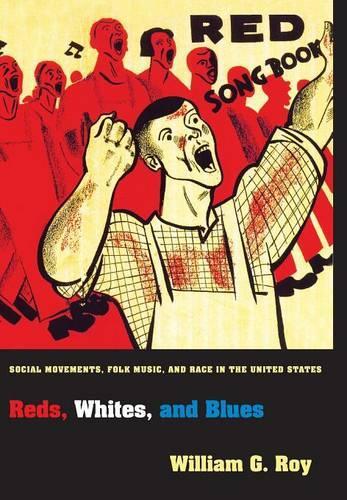
Reds, Whites, and Blues: Social Movements, Folk Music, and Race in the United States
(Hardback)
Available Formats
Publishing Details
Reds, Whites, and Blues: Social Movements, Folk Music, and Race in the United States
By (Author) William G. Roy
Princeton University Press
Princeton University Press
28th September 2010
United States
Classifications
Tertiary Education
Non Fiction
Sociology
306.48422
Winner of American Sociological Association Collective Behaviour & Social Movements Section: Charles Tilly Award 2011
Physical Properties
Hardback
296
Width 152mm, Height 235mm
595g
Description
Music, and folk music in particular, is often embraced as a form of political expression, a vehicle for bridging or reinforcing social boundaries, and a valuable tool for movements reconfiguring the social landscape. Reds, Whites, and Blues examines the political force of folk music, not through the meaning of its lyrics, but through the concrete social activities that make up movements. Drawing from rich archival material, William Roy shows that the People's Songs movement of the 1930s and 40s, and the Civil Rights Movement of the 1950s and 60s implemented folk music's social relationships--specifically between those who sang and those who listened--in different ways, achieving different outcomes. Roy explores how the People's Songsters envisioned uniting people in song, but made little headway beyond leftist activists. In contrast, the Civil Rights Movement successfully integrated music into collective action, and used music on the picket lines, at sit-ins, on freedom rides, and in jails. Roy considers how the movement's Freedom Songs never gained commercial success, yet contributed to the wider achievements of the Civil Rights struggle. Roy also traces the history of folk music, revealing the complex debates surrounding who or what qualified as "folk" and how the music's status as racially inclusive was not always a given. Examining folk music's galvanizing and unifying power, Reds, Whites, and Blues casts new light on the relationship between cultural forms and social activity.
Reviews
Winner of the 2011 Charles Tilly Best Book Award, Collective Behavior and Social Movements Section of the American Sociological Association "Although some of Roy's theoretical discussions in the early chapters should interest folk music scholars, his book will be more important to students of social movements."--Robert V. Wells, Journal of American History "The importance of this excellent book is that it revisits these two movements and reveals once again the power of culture."--Ron Eyerman, American Journal of Sociology "With these carefully documented and well-argued case studies, Roy makes a considerable contribution to cultural sociology in general and social movement studies in particular, and those with a background in the latter field will gain the most from the work as a whole."--Dana Sawchuk, Political Studies Review
Author Bio
William G. Roy is professor and chair of the sociology department at the University of California, Los Angeles. He is the author of "Socializing Capital" (Princeton) and "Making Societies".
